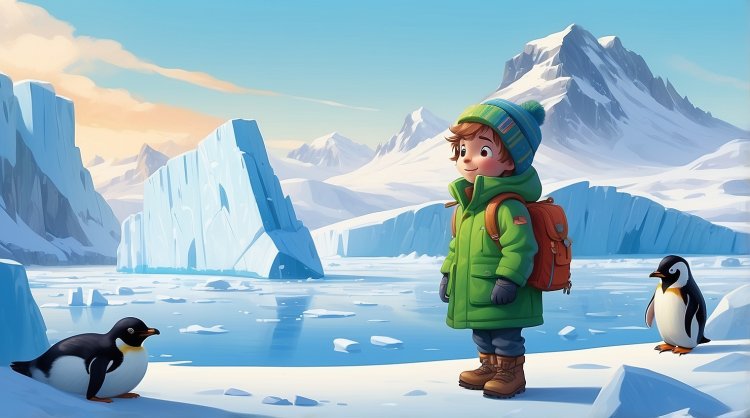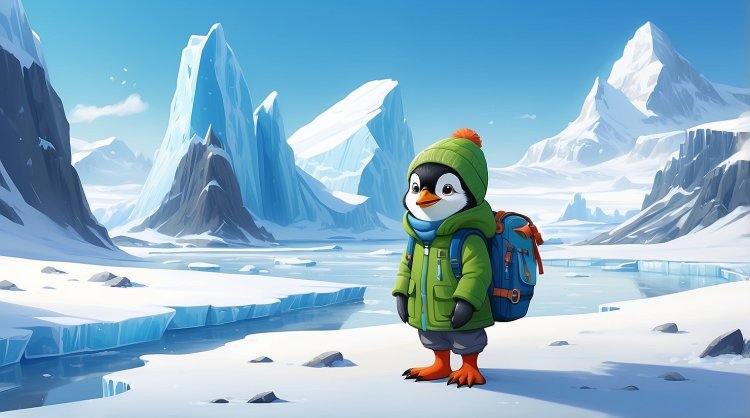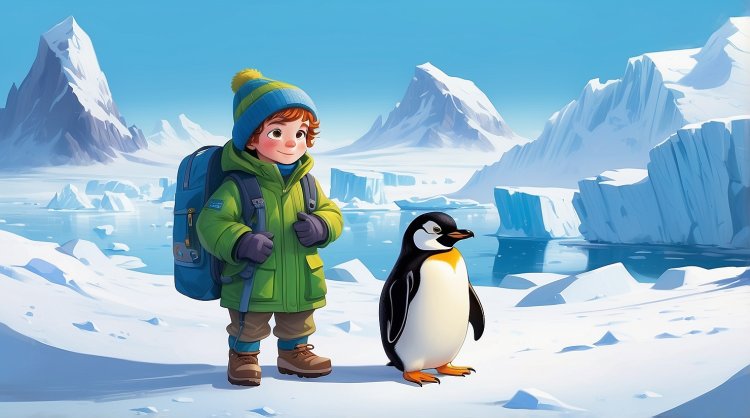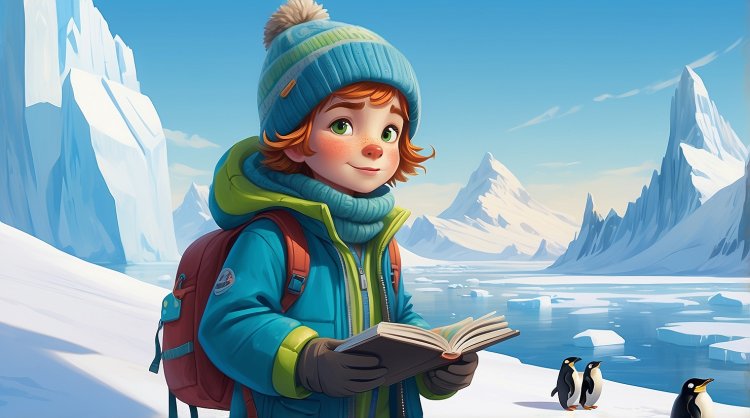Leo travels to Antarctica and meets penguins. A scientist explains the life of these birds and how they survive in the cold.
Antarctica for kids, penguins story, Antarctic nature for kids, Antarctic expedition, animals of cold regions, icy expanses of Antarctica

Leo gazed in awe at the snowy expanses of Antarctica. Here, at the southernmost point of the planet, lay an icy desert where frost, snow, and ice covered everything around. Despite the cold, Leo couldn’t contain his excitement: he was about to meet real penguins, creatures he had always dreamed of learning more about!

As soon as Leo stepped out of the expedition helicopter, he was greeted by a scientist named Dr. Nils. He was an experienced polar researcher who had studied the lives of penguins in Antarctica for many years. “Welcome to Antarctica, Leo!” Dr. Nils greeted him with a warm smile. Leo, shivering slightly from the cold, replied, “Thank you! It’s so cold here, but I’m excited to be here!”
Dr. Nils laughed and handed him a warm hat and mittens. “You’ll get used to it quickly. Come on, I’ll show you where the penguins live. They’re funny and very curious creatures!” Leo looked eagerly into the distance, where small black-and-white figures could be seen on the snowy ice. He was ready for a true “safari” across the icy landscapes of Antarctica.
As they walked closer, Leo finally saw the penguins up close. They were emperor penguins — the largest of all penguin species. Their smooth black heads and snowy white bellies stood out beautifully against the snow. Leo was fascinated by how they moved: the penguins waddled through the snow, rocking from side to side as if performing a funny dance.

Noticing Leo’s amazement, Dr. Nils began to explain: “Penguins are perfectly adapted to life in Antarctica. Their warm feathers and thick layer of fat help them survive in this cold. And their unique way of walking helps them conserve energy.” Leo listened carefully, trying to understand how such small birds could survive in such a harsh climate.
Then Dr. Nils pointed to a group of penguins standing in a circle, huddled closely together. “This is called a ‘penguin colony.’ When it gets especially cold, the penguins huddle together to stay warm. Those in the center get the warmth, and then they switch places so everyone has a chance to stay warm.” Leo was impressed; he hadn’t known that penguins took care of each other and helped each other survive.
They continued their walk on the ice, and Leo watched with fascination as some penguins slid on their bellies, pushing themselves with their feet. “Why do they do that?” he asked. Dr. Nils explained, “It allows penguins to move faster across long distances. It’s their way of ‘sliding’ on the ice to save energy!” Leo laughed, imagining penguins racing on their bellies.
Soon, Leo noticed some penguins diving into the water and quickly disappearing beneath the surface. “They’re diving!” Leo exclaimed in surprise. Dr. Nils nodded and explained that penguins are excellent swimmers. “They can dive up to 500 meters deep and stay underwater for several minutes. They hunt fish, squid, and small shrimp in the water as their main food source.” Leo was amazed at how well penguins were adapted to life both on land and in the water.

Dr. Nils shared another interesting detail with Leo: “During the Antarctic winter, there’s a polar night, and the sun doesn’t rise above the horizon for weeks. This means the penguins live in complete darkness. But they’re well adapted to it, as they can navigate in the dark thanks to their senses.” Leo thought about how amazing it was that nature had adapted these birds to such extreme conditions.
As the day came to an end, Leo thanked Dr. Nils for introducing him to the fascinating lives of penguins. He realized that Antarctica was more than just an icy continent. It was home to unique creatures that had found ways to survive in this harsh world. Leo promised himself that one day he would return to learn more about the animals that live in the coldest regions.
On the way back to the helicopter, Leo looked back at the penguins one last time. Now they seemed not just like funny birds but like true heroes who live and thrive in one of the toughest places on Earth. It was one of those adventures that would stay in his memory forever.
What's Your Reaction?




















